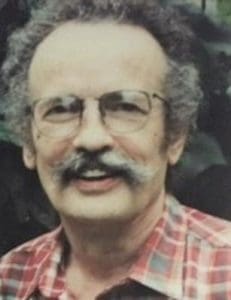This text is excerpted from a speech by Dick Hathaway given at an interfaith service in Poughkeepsie, New York, on November 1, 2004. For the complete text, please go to friendsjournal.org
 Three weeks ago, when I was invited to stand up here and talk about the Quaker Peace Testimony, I thought I would “make nice nice” and say something that everybody would agree with. I thought I would read you a nice poem, one that begins, “We are waiting for peace to break out; we are waiting for flowers to bloom.” But peace is not everybody agreeing with each other. And so I have decided to say something challenging, something you may not agree with, and something that even my fellow Quakers may not all agree with.
Three weeks ago, when I was invited to stand up here and talk about the Quaker Peace Testimony, I thought I would “make nice nice” and say something that everybody would agree with. I thought I would read you a nice poem, one that begins, “We are waiting for peace to break out; we are waiting for flowers to bloom.” But peace is not everybody agreeing with each other. And so I have decided to say something challenging, something you may not agree with, and something that even my fellow Quakers may not all agree with.
There is a movement afoot around the world to spread a simple, attractive message: “May peace prevail on Earth.” You can order note cards, a tote bag, a bumper sticker, a T‐ shirt, a button, a hat, an apron, and a Bic pen, all emblazoned with this message. You can spend anywhere from $175 to $1,400 to have the message printed in eight languages on an eight‐foot pole for planting in a park, a garden, or your church’s front lawn. Two hundred thousand of these poles have already been planted. “May peace prevail on Earth.” Sounds good. Very peaceful. Let’s plant it!
But … I would like to tell you why I think that is the wrong message. I would classify it as a pious platitude, one that everyone, or almost everyone, would agree with. Indeed, it is selling very well. It is a prayer, a prayer of the kind that we can so easily say without doing anything about it. We can give lip service to it, and leave the rest vaguely to God. George W. Bush, just before invading Iraq, could have uttered that prayer, and he probably did. He doubtless thought he was advancing the cause of peace, sweeping away some of those bad people out there who were preventing peace.
In 1917, Woodrow Wilson, praying that peace might prevail on Earth, took us into the greatest war humankind had yet seen, saying that it was a war to end all war. And you know what: the chief result of that war was the emergence of Communism and Fascism. Then we had an even greater war to defeat Fascism, and two more wars, in Korea and Vietnam, to try to hold back the rising tide of Communism. War, as always, produced war after war. Let’s look at the Christian Scriptures. It says, “Whatever a man sows, that he will also reap.” If we sow violence, we will reap violence. …
The Quaker message is that peace begins with an individual, an individual in communion with the Holy Spirit, an individual living peace, and exemplifying it at all costs. In 1651, George Fox, the founder of the Quaker movement, was offered a commission in the Puritan army. He refused it. Then he went home and wrote in his journal, “I told them I lived in the virtue of that life and power that took away the occasion of all wars.” Peace must be inward before it can become outward. Then you have to do something about it. For instance, you have to feed the hungry. That’s why American Friends Service Committee, a peace organization, spends a lot of its time and money feeding the hungry. Hungry people are ripe for war and revolution. And then
look at those incredible words of St. Paul: “If thine enemy hunger, feed him.” He was following the injunction of Jesus to exemplify love unconditionally, even if you die for it, as Jesus in fact did.…
Jesus said: “You will know them by their fruits. Are grapes gathered from thorns, or figs from thistles?” If you sow peace, you will reap peace. If you sow violence, you will reap violence. We need to learn this lesson. It is the lesson that we need to be guided by tomorrow as we go to the polls. It is the great lesson of what is happening in Iraq. It is the lesson of what will continue to happen if we don’t learn to live, to live in

